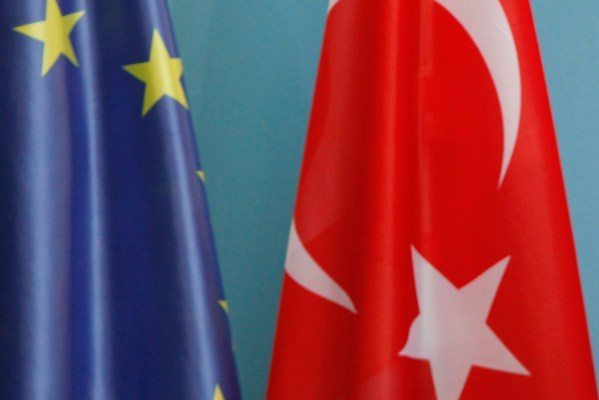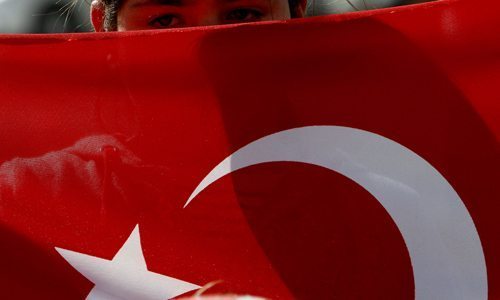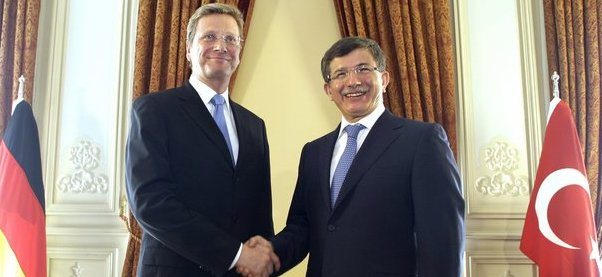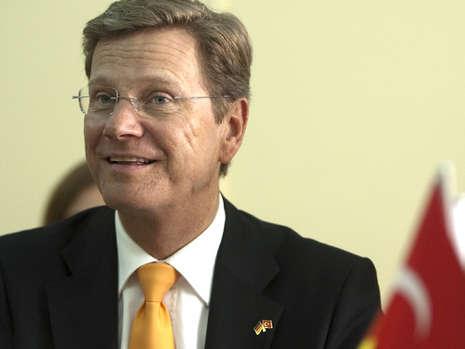– es gilt das gesprochene Wort –
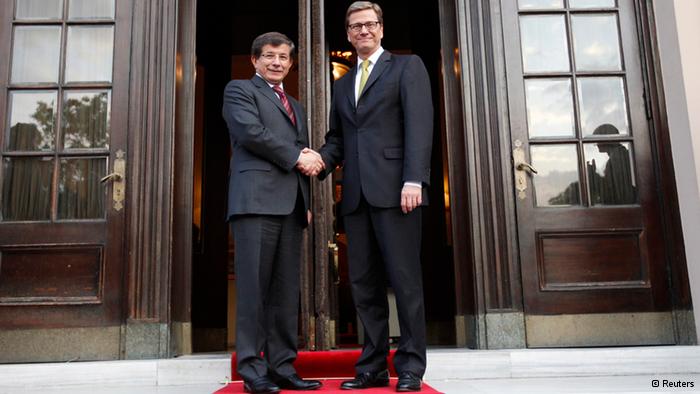
Ladies and gentlemen,
I am honoured to participate in this year?s Kronberg Talks on Europe, Turkey and the Mediterranean.
We know from Orhan Pamuk?s novels that fifty years ago, Istanbul was a somehow melancholic city of one million inhabitants.
Since then, it has undergone dramatic change. Today, the city boasts of more than twelve million inhabitants. It has turned into one of the most vibrant cultural and economic hubs on the planet. Recent meetings on Syria and Iran show that it is also a hotspot of world politics.
Here in Istanbul, everyone realizes that the Turkish society is living through an imposing success story. Turkey has set off to become one of the shaping powers of the globalized world.
Over the past decade, the Turkish economy has been growing at amazing rates. In 2011 alone, the gross national product increased by almost nine percent.
We welcome the course of internal modernisation. The judicial system has undergone substantial reform. Significant, and necessary, improvement has been achieved concerning the estates of religious minorities. There is more to do.
In terms of foreign policy, Ankara has become a political heavy-weight in the region and beyond.
Turkey?s impressive rise and self-confidence is nothing to be afraid of. The opposite is true. It opens new horizons for cooperation. Our cooperation can build on a strong basis:
Today, some 2.5 million people of Turkish origin live in Germany. It has become impossible to imagine our society without their enriching contribution. The intensity of our trade is enormous. Last year, it amounted to over 30 billion Euros.
I am confident that the artists? academy at nearby Tarabya, which Ahmed Davutoglu and I opened last October, will soon become a symbol for the vibrant exchange between our cultures.
“Going it alone” is not an option, neither for Turkey, nor for Germany. We are partners in shaping globalization. It is in our best mutual interest and to the benefit of an efficient international system to take our relationship to a new level, (I) in terms of the bilateral relationship between Turkey and Germany, (II) in terms of the rapprochement between Turkey and the European Union (III) and in terms of calibrating our foreign policies at the global level, especially towards the Southern Mediterranean and the Middle East.
(I) The bilateral relationship between Turkey and Germany is historically close.
And yet, we must ask ourselves whether the dialogue between our societies and governments is already as intense as it could be. We should explore ways to intensify our political exchange, for example by establishing a Strategic Dialogue chaired by the Foreign Ministers. This dialogue could cover a broad range of bilateral and European issues. It could also serve as a platform to exchange views on global matters like those discussed at the G 20.
At the same time, we should think about how to foster closer exchange between young Turks and Germans. Programmes Germany has developed with its French and Polish neighbours could serve as an inspiration. We should set up a Turkish-German Youth Bridge.
(II) At the level of the European Union, we must work hard to give new dynamic to the relationship with Turkey.
Europe must offer Turkey a fair deal in the accession negotiations. It is self-evident that the European Union cannot predict if and when Turkey will join the club. But our Turkish friends do have the legitimate expectation that progress must depend on Ankara?s own merits, not on domestic considerations elsewhere. I am optimistic that the latest elections in Europe will strengthen this principle. I am optimistic to overcome the standstill. Still, progress can only continue if Turkey steers an ambitious course of reform, including the implementation of the Ankara Protocol.
EU-Turkey relations and accession negotiations must be re-dynamised. For too long we have not opened a single chapter. For too long we have moved around in circles.
And for too long we have not put enough attention to the fact how much growth could be stimulated by even closer ties between Turkey and Europe.
Stronger economic ties with the new economic heavy-weights, such as Turkey, should be part of a European growth pact.
Strengthen our economic ties with the new centres of power is a convincing alternative to stimulus packages financed by new debts.
It would, however, be wrong to limit our vision of EU-Turkey relations to the accession negotiations. We must explore complementary paths that bring us closer together. This is why I have strongly supported the new “Positive Agenda? set by the European Commission and Turkey when it was discussed in Brussels last December. Germany stands ready to support. I believe we should explore the creation a Turkish-German European Partnership complementing the agenda. We should also consider the idea of a Turkish-German Rule of Law-Initiative, which could buil d on the excellent existing cooperation in this field.
Visa is another key area in which progress is vital. The spirit of our cooperation must be one of confidence and openness, not one of distrust and exclusion. I fully understand the wish of Turkish people to travel freely to Europe. Therefore we welcome the current initiative to have a dialogue on Mobility and Security between the European Union and Turkey. We hope, we will get results rather sooner than later.
Turkey and the European Union must also engage in a more intense exchange on foreign policy. We have not yet tapped the full potential of a Dialogue on Common Foreign and Security Policy.
(III) In terms of our policy vis-à-vis the Mediterranean, both Turkey and Germany have understood that the reforms and revolutionary processes under way are a historic opportunity. Both the European Union and Turkey have the potential to play key roles in fostering democratic and economic transition in the region. We should therefore continue to explore where we can join efforts through concrete cooperation.
Turkey serves as an inspiration to many in the Mediterranean, not least due to her close ties with the European Union. Prime Minister Erdogan?s visit to Cairo sent an encouraging message to the people in the region that democracy can be successfully reconciled with a secular Muslim society.
This is why people in the region are watching attentively how the Turkish success story continues. They are scrutinizing with equal attentiveness whether the European Union treats Turkey as a modern, secular country with Muslim identity as it should: on an equal footing.
Given Turkey?s special role for the region, Turkish-Israeli relations are important far beyond the bilateral sphere. As a friend of both Israel and Turkey, I urge both sides to resolve their difficulties. Turkish-Israeli ties of friendship would not only bring great mutual benefit. They could also act as a model for co-operation in the region as a whole.
Turkey is also a key player in seeking a solution to the appalling situation in Syria and in helping the suffering of the population. The international community cannot overestimate the humanitarian assistance Turkey is providing to those who flee from Syria. Both our countries have also worked hard to develop a political solution putting an end to brutal repression. We must continue on this path. We must continue to support the Annan plan. Repression must not stand ? not in Syria, not elsewhere.
We must strive relentlessly to create a world where prosperity wins over poverty, tolerance wins over hatred, and freedom prevails over oppression. This spirit must inspire the cooperation between Europe, Turkey and the Mediterranean. The world is in a period of dramatic change.
These changes are not without risks, but also full of chances. It is up to us, it is up to Turkey and Germany to seize these opportunities and to use these chances politically, culturally and economically.
Kontakt:
Auswärtiges Amt
Internetredaktion
Werderscher Markt 1, 10117 Berlin
Postanschrift: 11013 Berlin
Telefon: 03018-17-0
Bürgerservice: 03018-17-2000
Telefax: 03018-17-3402
Webseite: www.auswaertiges-amt.de
eMail: [email protected]

